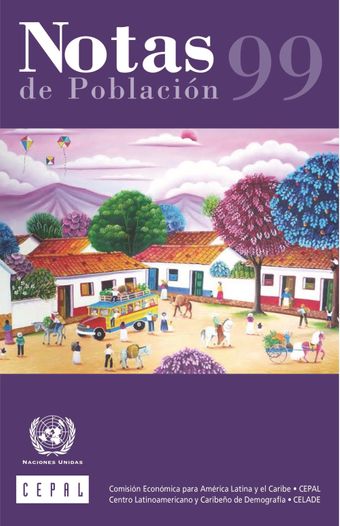-
Edad a la primera unión y al primer hijo en América Latina: estabilidad en cohortes más educadas
- Source: Notas de Población, Volume 41, Issue 99, Dec 2014, p. 39 - 65
-
- 31 Dec 2014
Abstract
This article examines trends in age at first sex, first conjugal union and first child for cohorts of women born in 1940-1980 in 12 Latin American countries. It examines the relationship between years of schooling and age at first sex, conjugal union and first child so as to understand the following paradox: if women with more years of education tend to delay the formation of a union and motherhood, why do women in more educated cohorts not form unions or have children at a later age than women in less educated cohorts? The results show that the delay in marriage and fertility expected in a context of educational expansion has been offset by a change in behaviour of educational groups over time. In all of the countries studied, for the same number of years of schooling women born in 1980 form a couple and have children earlier than women born in 1940 with the same number of years of schooling. These findings force us to reflect on the relationship between education and marriage and fertility and underscore the importance of the cultural and social context in which educational expansion occurs. This paper shows that the relative position of women in the education system is more important than the absolute number of years of accumulated schooling. The number of desired children has remained stable over this period, with no significant differences according to education level; contraception use, even at young ages, has grown in this period.
© United Nations



